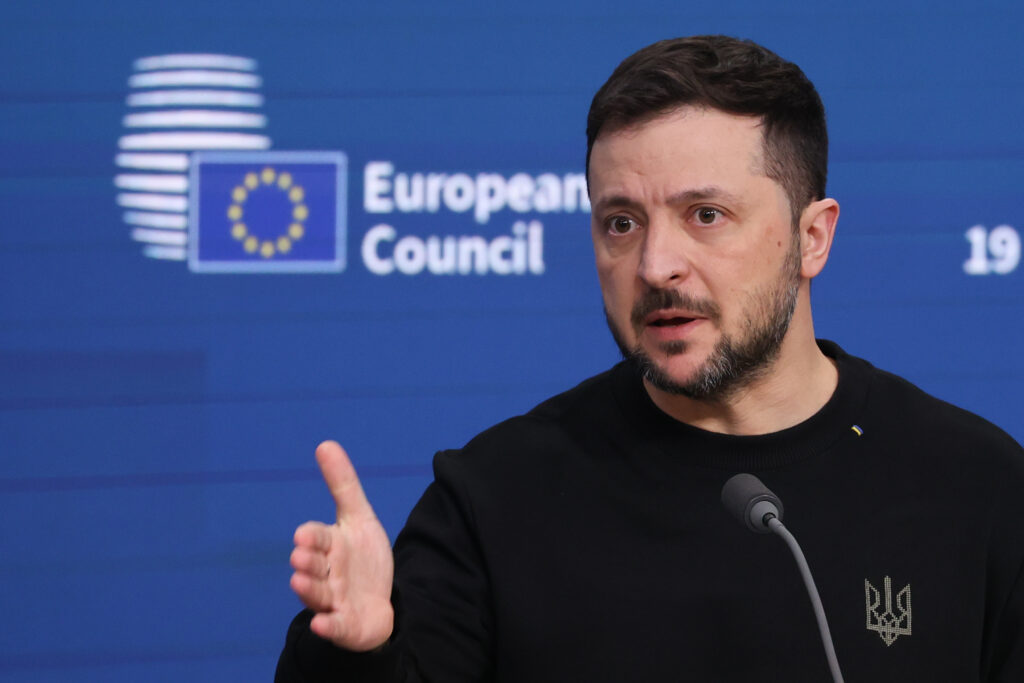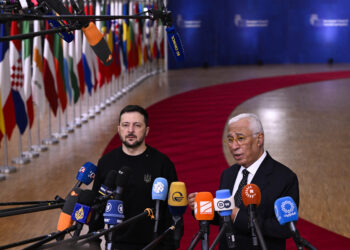Brussels – Catching almost everyone by surprise, Slovak Prime Minister Robert Fico flew to Moscow to meet in person with Russian President Vladimir Putin last night (Dec. 22). Tensions are sky-high between Bratislava and Kyiv over Russian gas supplies, which Ukraine no longer wants to allow to transit through its territory and which, on the other hand, the Slovak government would not like to give up. In addition, there is Fico’s threat to veto the former Soviet republic’s membership in NATO.
A “working visit,” the Kremlin spokesman Dmitry Peskov defined the face-to-face between Robert Fico and Vladimir Putin, which took place on Sunday evening and immediately became a political case between Moscow, Kyiv, and Brussels. According to reconstructions, the talks mainly focused on the “international situation” (read war in Ukraine) and the issue of Russian gas supplies to Bratislava.
The latter is one of the main elements that are bringing Slovakia and Ukraine on a collision course, as plastically emerged at the European Council on Dec. 19. On that occasion, there had been an exchange of accusations between Fico and Ukrainian President Volodymyr Zelensky, who attended the meeting of the leaders of the 27 member states to request new weapons and stronger security guarantees from the European partners.
The crux of the dispute, in particular, is the imminent expiration (at the end of the year) of the five-year contracts signed with Gazprom before the large-scale invasion in February 2022: Kyiv has announced that it does not intend to renew it in January, as it no longer wants to allow the transit through its territory of the methane with which Moscow finances its war on Ukraine. The stance irritated Fico’s government, with Slovakia losing access to cheap supplies from Russia, resulting in higher energy supply bills in the coming years.

The Slovak leader — pro-Russian and opposed to Western support for Ukrainian resistance — put the matter in terms of national security. A version rejected by Zelensky, who at last week’s summit indirectly scolded Fico by branding as “shameful” Bratislava’s attitude that, in the face of Ukrainian loss of life, he would only worry about saving money on the energy bill. On Thursday, the Ukrainian president had seemed open to the idea, arguing that, in principle, gas transit through his country and to Slovakia could continue but only if it was not gas extracted in Russia (thus also excluding gas that Azerbaijan buys from Moscow to resell to European states, as provided for in a pilot contract concluded recently between Bratislava and Baku).
During yesterday’s meeting, Fico reportedly obtained confirmation from Putin that Russia would still be willing to supply gas to the Old Continent. Likewise, the two reportedly discussed possibilities for a political solution to the war in Ukraine and bilateral relations between Bratislava and Moscow, which both sides would like to “normalize.”
Fico’s trip (of which European Council President António Costa said he received prior warning) comes six months after the one in July of his Hungarian counterpart Viktor Orbán, who had already created widespread condemnations in Brussels and Kyiv for cracking the unity of the Western front against Russia. In late October, the Slovak premier already ended up at the center of controversy – at home and in the EU – for appearing on Russian public television challenging sanctions against the Kremlin and questioning European support for Ukrainian resistance.
In addition to declaring himself ready to negotiate a truce with Putin, Fico also promised to participate in the military parade scheduled for May 9 in Moscow, marking the 80th anniversary of the Red Army’s victory over Nazi Germany in World War II (which the Soviets had dubbed the “Great Patriotic War”).
Since returning to power last year, the Slovak premier has halted military aid to Kyiv and has repeatedly threatened to block Ukraine’s membership in NATO, a decision for which unanimity of the alliance’s 32 member states is required. His party, SMER (which also includes European Commission Vice President Maroš Šefčovič, who is in charge of managing the Green Deal), was expelled from the European Socialist family in October 2023 for going into government with the far right and for its pro-Russian positions.
English version by the Translation Service of Withub






